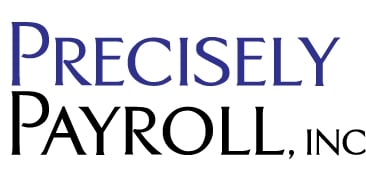Every payday, you eagerly open your paycheck, but do you really understand the numbers staring back at you? For many employees, deciphering the difference between gross pay and net pay can be confusing. Yet, this understanding is crucial for effective financial planning and personal budgeting. In this blog post, we’ll break down these concepts, provide practical examples, and offer tips to help you read your paycheck like a pro.
The Importance of Knowing Your Paycheck
Understanding your paycheck is more than just knowing how much you earn. It’s about comprehending where your money goes and how much you actually take home. This knowledge can help you make informed financial decisions, manage your budget better, and even save more effectively. By the end of this article, you’ll have a clear grasp of gross pay, net pay, and all the deductions in between.
What is Gross Pay?
Gross pay is the total amount of money you earn before any deductions are made. This figure includes your base salary, overtime, bonuses, and any other form of compensation. Calculating gross pay is straightforward—simply add up all your earnings.
How is Gross Pay Calculated?
To calculate gross pay, you need to consider all forms of compensation. For example, if your annual salary is $50,000 and you receive a $5,000 bonus, your gross pay would be $55,000. If you’re paid hourly, multiply your hourly rate by the number of hours worked to find your gross pay.
Why is Gross Pay Important?
Gross pay is crucial because it represents your total earnings. It’s the starting point for calculating taxes and other deductions. Employers also use gross pay to assess benefits and other compensation-related matters.
Understanding Net Pay
Net pay, often referred to as “take-home pay,” is the amount you receive after all deductions are made. This is the figure that appears in your bank account on payday. Knowing your net pay helps you plan your monthly expenses and savings more effectively.
How to Calculate Net Pay
To calculate net pay, start with your gross pay and subtract all deductions. These deductions can include federal and state taxes, Social Security, Medicare, health insurance premiums, and retirement contributions. The result is your net pay.
Net pay plays a significant role in personal finance. It’s the money you have available for living expenses, savings, and discretionary spending. Understanding your net pay helps you create a realistic budget and avoid financial pitfalls.
Common Deductions from Your Paycheck
Several deductions can reduce your gross pay to net pay. Understanding these deductions can help you know where your money is going and how it affects your take-home pay.
Taxes
Taxes are the most significant deduction from your paycheck. Federal income tax, state and local taxes, and Social Security and Medicare (FICA) taxes are all deducted from your gross pay. The amount depends on your earnings and tax bracket.
Insurance
Health, dental, and vision insurance premiums are often deducted from your paycheck. Some employers also offer life insurance and disability coverage, which can further reduce your take-home pay.
Retirement Contributions
Many employers offer retirement plans such as 401(k)s or IRAs. Contributions to these plans are usually pre-tax, meaning they reduce your taxable income and net pay.
Reading Your Paycheck Stub
Your paycheck stub contains valuable information about your earnings and deductions. Understanding it can help you verify that you’re being paid correctly and that your deductions are accurate.
The earnings section of your paycheck stub lists your gross pay and any additional compensation like bonuses or overtime. It provides a breakdown of how your total earnings were calculated.
The deductions section details all the amounts subtracted from your gross pay. This includes taxes, insurance premiums, retirement contributions, and any other withholdings. Reviewing this section ensures that all deductions are correct.
The YTD section shows your total earnings and deductions for the year up to the current pay period. This can help you track your annual income and see how much you’ve paid in taxes and other deductions.
Payroll Services in Bend, Oregon
Understanding the difference between gross pay and net pay is essential for making informed financial decisions. By knowing how to read your paycheck stub and what each deduction means, you can manage your finances more effectively. This knowledge empowers you to create a realistic budget, save more efficiently, and plan for the future.
If you’re looking for professional payroll services to help manage your employee compensation and ensure accuracy, Precisely Payroll offers tailored payroll solutions in Bend, Oregon. Learn more about how we can assist your business with seamless payroll management by exploring our services. You can reach out to us online or give us a call at (541) 317-0100
Now that you’re equipped with this knowledge, take a moment to review your next paycheck and see how much more you understand. For more tips on financial management and payroll services, stay tuned to our blog.

